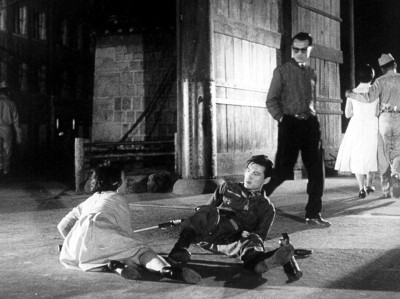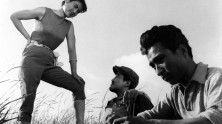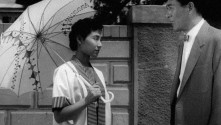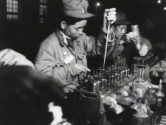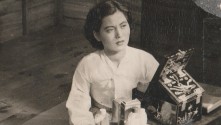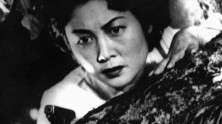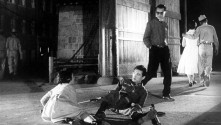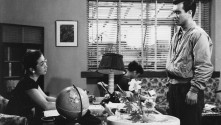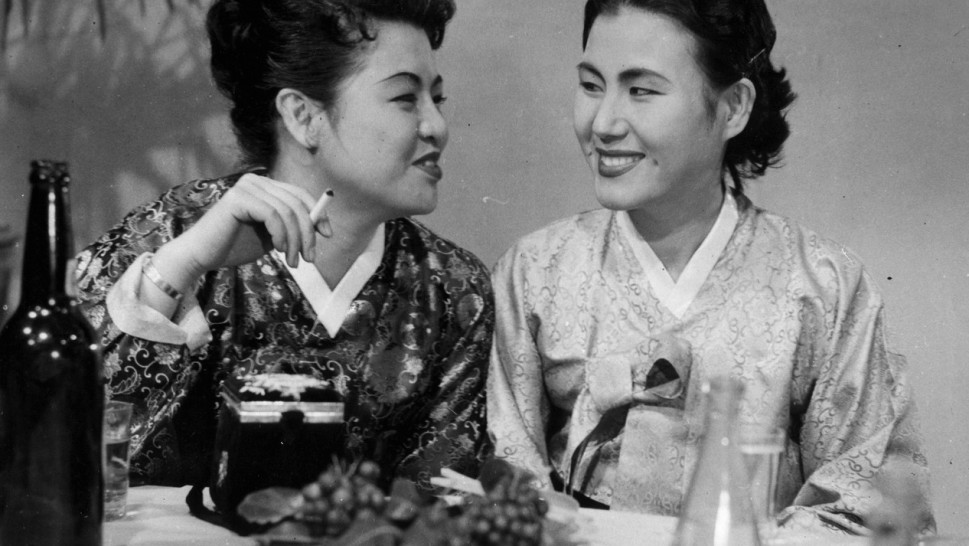
Madame Freedom
(Chayu puin)
With Pak Am, Kim Chong-nim, No Kyong-hui.
South Korea, 1956, DCP, black & white, 125 min.
Korean with English subtitles.
DCP source: Korean Film Archive
Visionary director Han Hyung-mo changed the landscape of popular Korean film with his spectacular images of cosmopolitan Seoul, powered by brilliant camera movements and stylish editing, often featuring women’s navigation of a “liberalized” postwar South Korea versus traditional patriarchy. Madame Freedom is easily the most iconic film of Han in this vein, as it visually foregrounds the irresistible American culture sweeping Seoul and its impact on the relationship between a middle-class professor and his wife, O Son-yong. As she experiences various forms of American material culture, such as its fashions and the dance hall, O Son-yong also starts to pursue sexual freedom. Like the homonymous serial novel on which it was based, the film provoked a great sensation, not only for depicting extramarital affairs, but also for falling victim to state censorship that declared the kissing and hugging scenes lascivious.
Though O’s begging for forgiveness by the end reads as the restoration of patriarchal authority over decadent American culture, scholar Oh Young Suk reads the ending as an alibi that performs, not supports, the patriarchal norm as a critical gesture to underline its emptiness. More recently, Christina Klein argues the film merits revisiting in terms of imagining the “female gaze,” for the point-of-view shots always represent those of the women fascinated by the liberating aspect of American culture. The film’s critical depth can further be found in its active use of crane and dolly shots, often showing both the spectacular subject, such as a mambo dancer, simultaneously with those who are enchantedly watching her. Such visual structure envisions not only the charm of the “American” object, but also the state of postwar South Korea’s embeddedness in the visual regime of the US.
